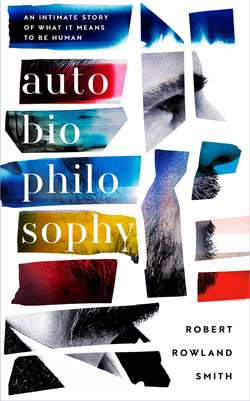Читать книгу AutoBioPhilosophy: An intimate story of what it means to be human - Robert Smith Rowland - Страница 28
Pomegranate in a shoebox
ОглавлениеBy the end of that year, 1986, I had tried two further temping jobs. The first was in the accounts department of a computer company located next to the old Croydon Airport. I might have got into Oxford and been a dab hand at English literature, but when it came to numeracy, I was at sixes and sevens. God knows what the auditors made of the books for the period that I was there. The second involved stacking shelves in the food hall at Marks and Spencer, organising the items according to sell-by date. If I was underqualified for the accounting job, I was overqualified for this. With no plan B, I quit on day two.
Meanwhile, Simone in Perpignan and I in Croydon had been writing regularly. We would send each other gifts. In return for a pair of ski pants that I bought her, Simone dispatched a fresh pomegranate. On account of its many seeds, the pomegranate is an ancient symbol of fertility.fn2 The fruit would demonstrate its prophetic power in due course, though as a gift it was already suggestive. Simone had wrapped the burnished gourd in newspaper and packed it into a shoebox. With it she had enclosed Baudelaire’s poem, ‘L’invitation au voyage’, which she had written out long-hand in French:
Là, tout n’est qu’ordre et beauté,
Luxe, calme et volupté.
‘There is nothing here that is not order and beauty, / Luxurious, calm and voluptuary’. I lingered over this refrain. Given my context – living with my parents, temping in Croydon – it was beguilingly exotic. Like a siren singing to a sailor all at sea, Simone was calling me to join her.
Again, I would realise it only later, but that wasn’t the first time in my family history that such an invitation had been issued. It echoed my father inviting my mother on the transatlantic voyage from England to Canada in 1959 which resulted in their wedding. Perhaps that was another reason why I was so amenable to Simone’s unwitting reinterpretation of it. My parents’ elopement having entered the family folklore, it must have formed a template in my psyche for how romantic events were meant to unfold. The template ran as follows:
Out of love, one follows the other across the sea.
We often play out our lives according to these semi-mythical frameworks implanted in childhood. They work like a foreshadowing, or the unwitting tracking of ley lines. In both cases, however, accepting the invitation was as foolish as it was romantic. By eloping, my parents had been playing fast and loose with their family ties. I was damaging my career prospects still further, for in those days, before the opening up of the European labour market, I had no right to work on the continent. Perhaps it was romantic because it was foolish.
